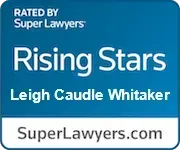Dallas, Texas Business & Corporate Lawyers
Our corporate law attorneys assist with commercial transactions, entity formations, restructuring, mergers & acquisitions, and other legal services for business.
Corporate Law and Business Attorney for Clients in Dallas
Our corporate, commercial, and business attorneys serve the legal needs of entrepreneurs, startups, and companies of all sizes. We know that starting a business or maintaining an existing business may be one of the most challenging and rewarding things you will ever do. We know you bring the passion and skill to start and build a business, and our business attorneys can help you understand the legal requirements of running your business in a complex and competitive corporate environment. From starting new businesses to engaging in transactions and resolving disputes, our firm is the experienced choice in corporate law.
Our Dallas business attorneys can advise you on a wide range of legal matters, including corporate law, contract law, copyright registration, trademark registration, mergers and acquisitions, corporate governance, and litigation. When you work with our firm, you can rest assured you will receive direct legal counsel from a well-versed lawyer in business, corporate, commercial law.
Dallas Business Lawyers Focus On Complex Business & Intellectual Property Disputes
Our Dallas corporate law attorneys and lawyers represent individuals, small businesses, entrepreneurs, creative artists, and inventors in litigation throughout the United States, including the U.S. District Courts for the Eastern District of Texas, Northern District of Texas, Southern District of Texas, and Western District of Texas. We have legal experience in complex business disputes and intellectual property disputes:
- Cyber Security
- Data Breaches & Hacking
- Data Compliance
- Data Privacy
- Technology Outsourcing
- Technology Transactions
- Trade Secret Protection
- IP Due Diligence
- Cloud Computing Technology
- Domain Names Disputes
- IP Indemnification
- Reseller Agreements
- Non Disclosure Agreements
- Forfeitures and Terminations
- Mergers & Acquisitions
How Do I Choose The Proper Entity Type for My Business?
When beginning a business, you must decide what form of business entity to establish. Some of the most common forms of businesses include the sole proprietorship, partnership, limited liability company, and corporation. This usually starts with choosing a name for your company and filing an organizational document listing officers, appointing agents, setting up corporate records, creating bylaws or operating agreements, appointing directors, and even issuing stock or membership interests depending on your entity choice. There are also tax and liability laws, insurance requirements, copyright and trademark laws, and more that will affect your name and entity choices. Our business lawyers are trained in these complexities and can provide you with business startup assistance to help make your business dreams come true. If you need help Choosing between a Texas Member Managed or Manager Managed LLC you can find additional information by clicking the link!
Get Expert IP, Contract Review and Legal Advice on Potential Risks and Drawbacks to your Corporate Agreements
Types of Corporate Transactions, Contracts & License Agreements We Help With
There are many different types of business contract and litigation disputes we help with. Our Dallas corporate and business attorneys represent international and U.S. businesses before courts, arbitration panels, and administrative tribunals in matters involving:
Expert Corporate Legal Assistance
Our Dallas, Texas business & corporate legal team handles a variety of legal matters for their small, medium, and Fortune 500 clients. Some of our common business law legal service offerings include the following:
Drafting, reviewing, and negotiating contracts and agreements, such as employment contracts, vendor agreements, leases, and partnership agreements.
Assisting with trademark and copyright registration, drafting licensing agreements, and providing counsel on intellectual property infringement issues.
Representing clients in business-related litigation, including contract disputes, shareholder disputes, employment litigation, and other commercial disputes, as well as alternative dispute resolution methods like mediation and arbitration.
Assisting with trademark and copyright registration, drafting licensing agreements, and providing counsel on intellectual property infringement issues.
Frequently Asked Questions
What is a Sole Proprietorship?
Establishing a sole proprietorship is likely the simplest entity to begin, as it does not necessitate filing formation documents with the Secretary of State. However, while the commencement of a sole proprietorship may be straightforward, this business structure presents its own challenges. Sole proprietors assume personal liability for the financial and legal issues of their businesses. Given the propensity for disputes to arise in any business, this liability can be substantial to bear.
What is a General Partnership?
Similar to sole proprietorships, general partnerships are relatively easy to initiate and do not necessitate filing formation documents with the state. Typically, engaging in a for-profit business venture with at least one other individual automatically initiates a general partnership.
Regrettably, general partners assume personal liability for the partnership's affairs. They are also accountable for any wrongful actions committed by other partners during regular business operations or as directed by the partnership. Additionally, if you intend to transfer your authority to manage and receive profits from the partnership, the consent of all other partners is typically required.
What is a Limited Partnership?
A limited partnership provides a blend of financial and legal safeguards. It typically consists of at least one general partner and one limited partner. The general partner remains personally liable for the business's legal and financial obligations. Conversely, a limited partner usually avoids personal liability unless they exert control over the business, acting akin to a general partner.
While the protective measures for limited partners may seem appealing, they often entail accepting a reduced share of business profits and relinquishing some control over business operations.
To establish a limited partnership, you must file a Certificate of Formation with the Secretary of State. Additionally, your limited partnership must formalize its structure through a partnership agreement, detailing how partners will manage the business and collaborate with each other.
What is a Limited Liability Partnership?
In a limited liability partnership, partners bear no personal liability for the financial and legal obligations of the partnership. To establish this type of partnership, you must submit an Application for Registration to the Secretary of State. It's essential to maintain legal compliance by fulfilling Annual Report filing obligations. Additionally, staying updated on any changes in state regulations ensures ongoing adherence to statutory requirements and minimizes legal risks for the partnership.
What is a Limited Liability Company?
Establishing a limited liability company (LLC) offers a method to operate a business individually or with partners while avoiding personal liability for the company's debts and obligations. Those involved, known as members, benefit from similar personal protections as shareholders in corporations. Unlike corporations, however, LLC members are not subjected to double taxation at the corporate level.
What is a Professional Limited Liability Company?
A Professional Limited Liability Company (PLLC) is a specific type of limited liability company (LLC) formed by licensed professionals, such as doctors, lawyers, accountants, architects, and other professionals.
A PLLC offers liability protection to its members (owners) similar to a traditional LLC, meaning that the personal assets of the members are typically protected from business debts and liabilities. However, unlike a standard LLC, a PLLC is typically reserved for professionals who are required to have state licenses to practice their professions.
Additional Considerations In Selecting The Right Business Structure For Your Start Up
Every startup must consider several business factors before choosing the proper entity type, and each decision hinges on various specifics unique to your business situation. Key business considerations include the following:
- Ease of transferability desired for your business.
- Control and management between business co-owners.
- Your strategy for raising business capital.
- The availability of time and resources to fulfill business filing requirements.
- Risk tolerance for personal liability and risk taking.
- Who will be the business owners or intended investors, now or in the future.
- Tax implications and the ability to financially manage the start up.
Our Dallas business start-up lawyers can assist in identifying the most critical factors in this decision-making process and help you select the most suitable business structure for your business needs. Furthermore, our corporate law attorneys can draft essential business administration documents (such as bylaws, LLC agreements, PLLC agreements, partnership agreements, buy-sell agreements) to facilitate your chosen business structure and minimize risk.
Our Dallas Business Attorneys Can Assist You With All Your Corporate Needs
If you're looking to start a new business, sell an existing business, or become a shareholder or partner in an existing company, our Texas business lawyers have the expertise to give you the proper counseling and advice. Our Dallas corporate business lawyers counsel clients in a wide variety of corporate and commercial transactions related to corporations, limited liability companies, partnerships, and joint ventures, including:
- Corporate formation
- Corporate organization, ownership, and control
- Corporate dissolution
- Shareholder and operating agreements
- Preparation and negotiation of corporate agreements
- Preparation and negotiation of employment agreements
- Preparation and negotiation of joint venture agreements
- Preparation and negotiation of non-disclosure agreements (NDAs)
- Preparation and negotiation of mergers, sales, acquisitions
- Providing advice to majority and minority owners, members and partners
- Representation of lenders and borrowers in commercial lending transactions
- Representation of creditors in bankruptcy and other contexts
Wilson Legal Group assists corporations and business owners throughout Dallas and the rest of Texas with all corporate law matters. We help business clients in Dallas, Plano, Allen, Lewisville, Flower Mound, Irving, Denton, McKinney, North Richland Hills, and all cities within Dallas County, Tarrant County, Collin County, and Denton County.
Experienced Corporate Attorneys in Dallas, Texas
Why Choose Wilson Whitaker Rynell?
Comprehensive Corporate Expertise:
We offer a wide range of corporate legal services including entity formation, corporate governance, contract drafting and negotiation, intellectual property protection, mergers & acquisitions, and litigation. Our attorneys are well-versed in handling complex business issues, providing clients with robust and informed legal strategies.
Experienced and Recognized Business Lawyers:
We have a team of experienced attorneys, including John T. Wilson, Leigh Whitaker, and Jennifer Rynell. These lawyers are recognized for their excellence and dedication, ensuring clients receive top-tier legal representation as voted in Super Lawyers. The formation and management of a corporation demand diligence and commitment. Our lawyers have industry experience working inside and outside large corporate legal environments.
Contact Our Dallas Business Formation Lawyers To Talk About Your Start-Up:
We are committed to understanding their clients' businesses and objectives. We provided practical, thoughtful solutions tailored to each client's unique needs, aiming to deliver efficient and effective legal services. Wilson Whitaker Rynell offers informed counsel, honest and reliable service, and personalized attention to your corporate and business needs. Contact us or call 972-248-8080.


















